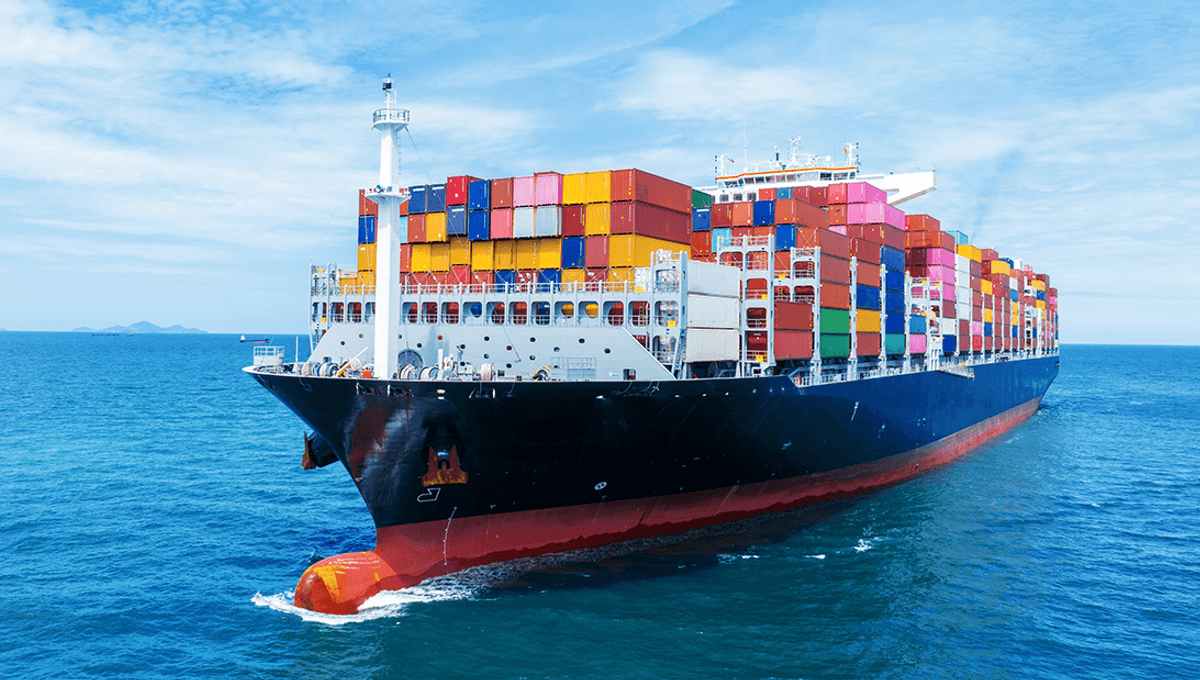
It’s easy for a science website to get bogged down in the weirdest mysteries of the universe, while people really want the answers to more basic (but fun!) questions like “Why can’t we power our cars with magnets?” and “What would happen if you tried to swim in a pool on the Moon?”.
One such question, recently posed by The Science Asylum on YouTube, is what happens to the level of the water if you throw a heavy weight out of a boat. Say you have a giant cargo ship filled with heavy cargo. For ease, say you are shipping airtight cargo containers each filled to the brim with solid gold. For reasons best known to yourself and the leprechaun you’ve been hallucinating during your long nights away at sea, you decide to throw several containers over the edge. What happens to the level of the water?
You may be tempted to say that the level of the water goes up, as there’s a new object in the water so surely it must go up by the amount of water it displaced. Or, you may be tempted to say that the level of the water remains the same, as the ship’s weight goes down by the same weight as the container now sinking towards its watery grave. But neither answer is right, assuming that the cargo container is heavy enough to sink.
For the answer, we need to learn a bit about density and buoyancy. You may have been taught the answer in school, but there’s no shame in forgetting and having a little refresher.
Buoyancy is an upward force in a fluid (any flowing substance, including air) exerted on all bodies within it. The force comes from the pressure within the fluid being greater the further down in the fluid you go. The pressure on the bottom of an object within the fluid is higher than at its top, causing the upward force. The Archimedes principle states that a body submerged or partially submerged in a fluid is acted on by the buoyant force in a magnitude equal to the weight of the fluid it displaces.
If the buoyant force of a fluid is greater than the downward force (its mass times the gravitational field strength) of an object placed within it, the object will float. But objects that are more dense than water (at the surface) will sink until the forces are equalized.
Ships, you may have noticed, generally don’t sink. They are filled with all kinds of other materials, including air, which is what keeps them afloat. The average density of the ship, including the air within it, is lower than that of water, and so the upward force is greater than the one drawing it to the bottom of the ocean, and so the boat floats. Place a ship weighing 100,000 tons in the water and it will sink until it displaces 100,000 tons of water. As you fill the ship up with objects denser than water, it sinks further into the water until it displaces the new weight.
Here’s where it complicates the water level. As you add weight to the ship, it sinks further into the water until it has displaced the same weight of water. If you add something really heavy, like gold, the overall ship displaces more water than the gold would if it was thrown into the water by itself.
To try and get your head around it, imagine having a really really dense object, that weighs 1,000 tons but is about the size of Danny DeVito. If you put it on a boat, you would expect the boat to sink into the water further and make the water level go up. Throwing it overboard, you would then expect the water level to fall down again, before a slight lift by the amount of water that Danny DeVito will displace.
Source Link: If A Heavy Cargo Container Falls Off A Ship, What Happens To The Level Of The Water?